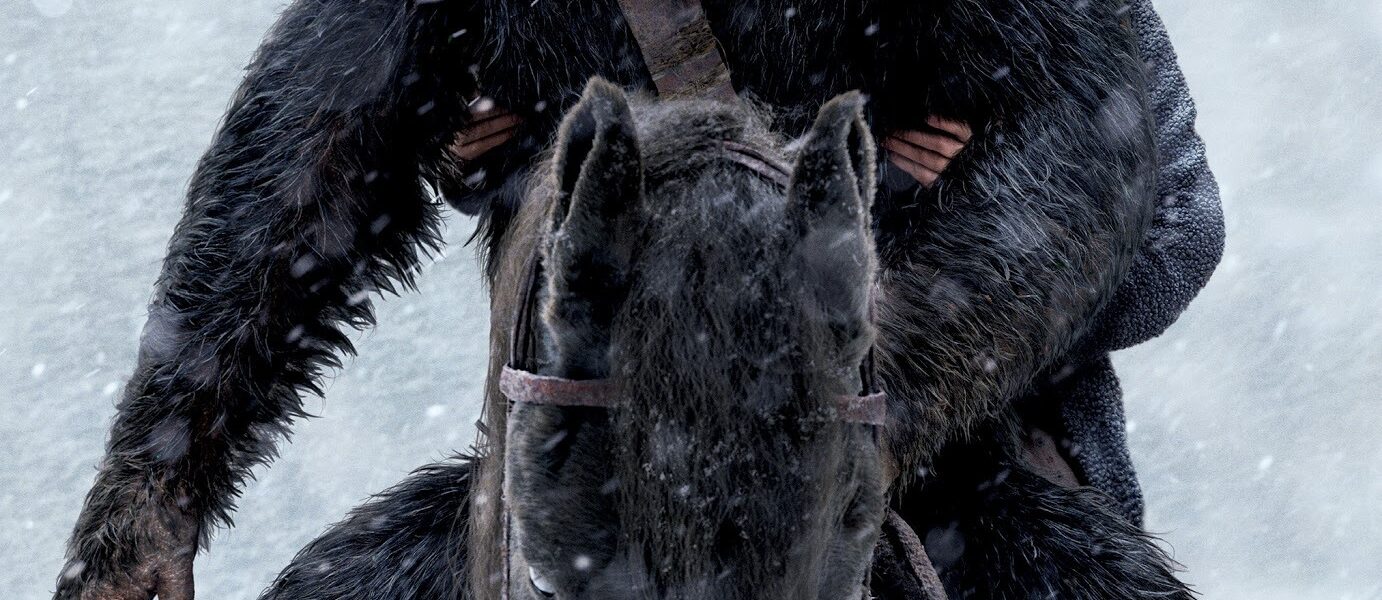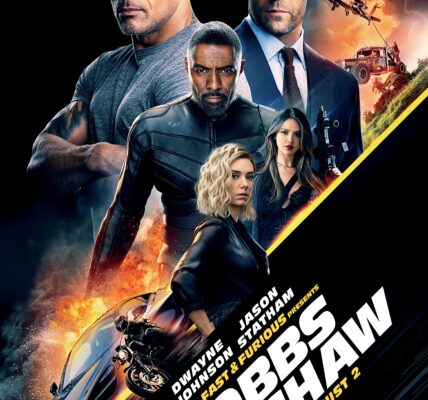Movie Overview
- Title: War for the Planet of the Apes
- Release Date: July 14, 2017 (USA)
- Genre: Science Fiction / Action / Drama
- Director: Matt Reeves
- Main Cast: Andy Serkis (as Caesar), Woody Harrelson (The Colonel), Steve Zahn (Bad Ape), Karin Konoval (Maurice), Amiah Miller (Nova)
- Where to Watch: It’s typically available for rent or purchase via digital platforms such as Fandango at Home and others; check your local streaming or video-on-demand services.
1. Plot Summary
The film is set in 2028, two years after the events of Dawn of the Planet of the Apes. The fragile peace between humans and apes has broken down. Caesar, leader of the apes, faces escalating conflict as humanity, under the command of a ruthless military figure known simply as The Colonel (Woody Harrelson), seeks to exterminate or subjugate the apes.
After The Colonel’s forces attack the ape community, slaying many including Caesar’s loved ones, Caesar embarks on a journey of vengeance. Along the way, he is joined by faithful lieutenants Maurice and Rocket, and later Nova, a mute human child. During the journey Caesar is confronted by his own darker impulses—whether to become like the humans he despises, whether revenge is worth the cost, whether leadership is responsibility or burden.
The story becomes both a war film and a survival journey, with scenes in harrowing terrain (snow, freezing weather), human strongholds, and moral confrontation. The climax pits Caesar against The Colonel in a conflict where both physical and moral stakes are high.
2. Notable Elements
What makes War for the Planet of the Apes stand out (positive and negative):
Highlights
- Andy Serkis’s Performance & Motion Capture: Serkis as Caesar is deeply moving. Through motion capture, Caesar is given a full emotional line: grief, rage, doubt, leadership. His performance makes Caesar a fully sympathetic character, not just a heroic figure.
- Visuals & Cinematography: The film is visually stunning. Cinematographer Michael Seresin captures landscapes (snow, forest, ice), the contrast between nature and human strongholds, and uses lighting, color, and texture to emphasize mood—cold, harsh, bleak, but also sometimes beautiful.
- Score / Music: Michael Giacchino’s score supports the emotional weight, often filling in where speech is minimal. The film uses silence effectively; the music amplifies internal conflict, sorrow, tension.
- Tone & Genre Blending: The film blends war movie, drama, and moral inquiry. There are large-scale human vs ape confrontations, but also intimate moments of loss, leadership, sacrifice. Scenes of tension (e.g. Caesar’s captivity, torture), quiet moments (interactions with Nova, reflections on leadership), and spectacle (battle scenes) balance fairly well.
- Side Characters & Comic Relief: Steve Zahn’s “Bad Ape” provides lighter, often off-beat moments that relieve tension without breaking the film. Maurice (Karin Konoval) and Rocket also bring wisdom, loyalty, and moral weight.
Shortcomings / Less Strong Points
- Length & Pacing: At ~140 minutes, some scenes drag or feel repetitive, particularly scenes depicting human cruelty / torture. Some critics felt the film could have been tighter.
- Human Characters’ Depth: While Caesar and many of the apes have rich character arcs, some human characters remain more shadowy or serve primarily as antagonists. The Colonel is compelling, but many human motivations are less explored.
- Emotional Toll / Darkness: The film is fairly grim. For viewers expecting lighter entertainment or less intense moral weight, this might be heavy. Scenes of suffering, betrayal, loss are numerous and potent. Some of the violence and moral ambiguity may be disturbing.
3. Themes & Messages
Here are the key themes, and how they resonate (even beyond just “action”):
- Vengeance vs Forgiveness / Moral Leadership: A core conflict is Caesar’s struggle: he feels compelled to avenge atrocities, but he also grapples with what kind of leader he wants to be. Does vengeance poison him? Does it betray the ideals that made the apes different? The film poses the question: when fighting injustice, do you risk becoming what you hate?
- Loss, Trauma, and Grief: Caesar carries much loss—of family, of peace, of hope. The film examines how grief shapes decisions, how trauma lingers, and how leaders must balance their pain with responsibility.
- What It Means to be Human / Humanness vs Inhumanity: Although apes are the protagonists, “humanity” as a term is interrogated. The colonel’s cruelty, the turning of human institutions toward dehumanization, the manner in which violence, oppression and fear corrupt. Conversely, moments of compassion (e.g., Nova’s kindness, apes caring for each other) show that “being human” isn’t about species but about actions, empathy.
- Survival, Hope, and Sacrifice: The apes are fighting not just to win a war, but to find a future, to survive. Certain characters make sacrifices; trust must be earned; the journey is both external (through war zones, human camps, harsh conditions) and internal (within Caesar).
- Leadership & Legacy: Caesar’s role as leader is heavy. Others look to him; his decisions will shape what kind of future the apes have. The film touches on the burden of being the one who others follow, and what it takes to lead with integrity in impossible circumstances.
These themes give War for the Planet of the Apes emotional depth. They also offer mirrors to human history and present conflicts: war, oppression, displacement, leadership in times of crisis. While not “holiday” themes, they connect to universal values of hope, sacrifice, peace vs conflict.
4. Personal Impressions
Here are my thoughts — what I felt strongly, what bothered me, overall experience.
What I Loved
- The emotional weight: I found many moments truly moving—loss of loved apes, the burden Caesar carries, moments of hope. The film doesn’t shy away from the cost of war.
- Caesar as a hero with flaws: Not just a perfect leader; his inner darkness, doubts, rage make him more believable and compelling. The arc of his facing what he might become is powerful.
- Technical craftsmanship: The motion capture work feels top-notch; the apes are believable in their motion, gestures, expressions. The environment, the snow, the winter scenes, human camps all feel real. The score supports mood without over-manipulating.
- Balance between epic and intimate: Big action scenes are grand, but the film also gives quieter breathing spaces—scenes of personal interaction, moral choice, reflection—which give stakes emotional texture.
What Didn’t Work as Well for Me
- Moments of slow pacing: especially in the middle, where the film shifts between battle, imprisonment, journey, it sometimes loses momentum. I felt the tension sagged in a few interlude sequences.
- Repetitive suffering: Scenes of human cruelty, ape suffering are necessary for stakes, but there are moments where they are heavy to endure, and I quarter-wish the film had balanced them with more respite or variation.
- Some human side arcs (beyond the Colonel) feel underexplored. For instance, the moral complexity of humans who might sympathize (or want peace) is hinted at but not always developed. This makes the conflict feel more binary at times than it realistically might.
- Ending complexity: There are multiple threads and some ambiguity in the final acts which might leave some viewers wishing for more closure in certain character arcs.
5. Audience Recommendations
Who will particularly enjoy this movie, and in what mood:
- If you like science fiction that grapples with moral questions, not just action; this is a film that rewards thinking, not just spectacle.
- Fans of previous Planet of the Apes movies (especially the reboot trilogy) will appreciate the continuation and conclusion of Caesar’s story.
- Viewers who appreciate high quality visual effects, motion capture, and immersive world-building.
- Audiences who enjoy war movies or journey / quest narratives, especially those with strong character arcs and emotional depth.
- Suitable for adult viewers or older teens (PG-13) who can handle darker themes, violence, loss.
Less ideal for:
- Viewers looking for light entertainment or escapist fun without darker moral weight.
- Young children or sensitive viewers who may be disturbed by intense battle scenes, cruelty, suffering.
- People who prefer very tight pacing throughout; occasional slow or contemplative scenes may feel too long.
6. Conclusion & Rating
War for the Planet of the Apes is a powerful, visually spectacular, emotionally resonant film that elevates what could have been just another blockbuster into something more meaningful. It’s a strong capstone to the Caesar trilogy—offering drama, moral weight, sacrifice, and some hope even amid despair. While not perfect (some pacing and human character depth issues), it largely succeeds in delivering on both scale and heart.
Final Recommendation: Definitely worth watching, especially if you appreciate stories about what it costs to fight for peace, what it means to be a leader, and how vengeance and mercy shape outcomes. It’s one of the stronger entries in modern sci-fi action.
Star Rating: ★★★★½ (4.5 out of 5 stars)




